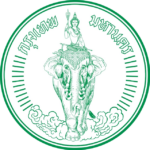PM Adviser Joins Growing Call for Rate Cut Amid Rising Risks
Benchmark rate should be 1% as opposed to 2.25%, economist says
An adviser to Prime Minister Paetongtarn Shinawatra reiterated the government’s calls for the Bank of Thailand (BoT) to deliver more rate cuts this year to support Southeast Asia’s second-largest economy.
The benchmark interest rate at 2.25% is not accommodative, Supavud Saicheua, 68, said in an interview on Tuesday. Last year’s growth drivers — better-than-expected exports, a foreign investment surge and a recovery in tourism — could also be fleeting this year, he added.
“All the metrics tell me that monetary policy is way too tight,” said Mr Supavud, referring to negative loan growth and subdued inflation. The BoT will have to “reluctantly surrender to the evidence of a feeble economic recovery.”
Ms Paetongtarn’s government has been at odds with the BoT on how best to revive the Thai economy whose growth lagged many of its neighbours in the past decade. Its repeated calls in the past year for monetary easing has been met with push back from the central bank that wants to maintain neutral policy as a buffer against global shocks.
The BoT, which kept the policy rate steady at 2.25% in December after a surprise quarter-point cut in October, is scheduled to review the rate on Feb 26. Fourth-quarter gross domestic product (GDP) report will be on Feb 17.
With the BoT forecasting inflation to average 1% this year, the policy rate should ideally be reduced to 1% to bring down the real rate to zero, said Mr Supavud who also heads the nation’s planning agency. He said that level of borrowing cost will be accommodative to the economy.
Mr Supavud, who applied to become BoT governor in 2015, said Thailand’s key rate can at least go down to 1.5% to 1.75% by the end of the year.
The current monetary policy of targeting inflation is not appropriate for Thailand — a small nation with an open economy and inflation is mainly dictated by global factors, he said.
Thai officials are trying to make sense of rapidly evolving US policies and their implications for the trade-reliant economy. Ms Paetongtarn’s administration is drawing up a strategy to avoid getting into the crosshairs of President Donald Trump’s tariff threats and narrow the nation’s trade surplus of about US$35 billion with the United States last year.
The government has also been exploring ways to exert greater influence over the BoT, including pushing the candidacy of a former finance minister to be the chairman of central bank. That plan has not materialised because the selection committee found the administration’s pick unsuitable.
BoT governor Sethaput Suthiwartnarueput’s five-year term ends on Sept 30, giving Ms Paetongtarn’s government another shot at expanding its sway on the BoT since it can influence the selection of the successor.
Finance Minister Pichai Chunhavajira said last month that potential candidates for BoT governor are being discussed, adding that the next governor should be “forward-looking with modern ideas” and “should also have measures that support government policies.”
The next central bank chief should be the one to ensure that “monetary policy work with fiscal policy not work against it,” Mr Supavud said.
Credit : https://www.bangkokpost.com/business/general/2954707/prime-ministers-adviser-supavud-saicheua-joins-chorus-calling-for-rate-cut-as-risks-mount-in-thailand
